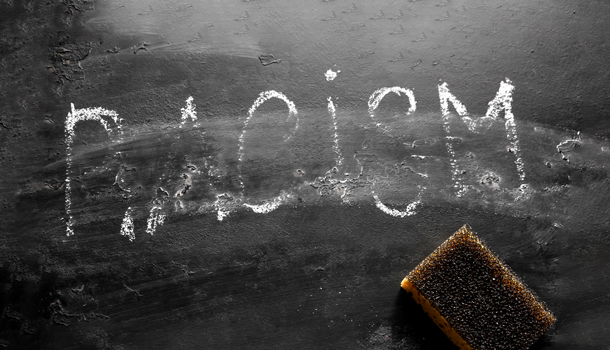
Montrose, We Have a Systemic Racism Problem

The death-by-cop of George Floyd has led to people across our nation and the world having hard, honest, and necessary conversations about systemic racism.
One of those groups that needs to have some hard, honest conversations about systemic racism is our own TBLGQ-plus-one community. As members of this family, it is illogical for us to think that we didn’t bring the baggage of systemic racism from the previous generation with us.
Last month, I had a conversation with Roxanne and Vanity Wilde on Roxanne’s FB page concerning a post she wrote. In that post, she discussed (as a longtime entertainer extraordinaire in our community) the micro- and macro-aggressive racism she had faced and fought behind the scenes.
What micro-aggressive and macro-aggressive racism, you ask? Things like Montrose show-club owners ordering that no gospel or rap songs be played or lip-synched to. She talked about being barred from performing Billie Holiday’s “Strange Fruit” because it was, in the club owner’s opinion, “too racially charged.”
She described the racism in pageant circles, and the discriminatory tactics used at the now-closed EJ’s club. When it got “too dark” (their code words for “too many Black people in here”), they started charging any subsequent Black peeps that arrived at the door a $10 cover charge to hopefully persuade them to go somewhere else.
Vanity discussed being denied entry into Ripcord, JR’s, and Montrose Mining Company. She also recalled an incident in which she was denied entry into Montrose Mining Company after being disrespectfully told, ‘‘We don’t want them soliciting our customers.”
I ended up talking about the time that Isivi Ross and I were denied entry into Mother’s, a gay white male hangout, just days after we had performed there at an AIDS benefit show. I found out later that Mother’s actually had a policy to exclude transgender and Black customers, so I did the happy dance when it finally closed.
And yeah, there was also the time when I was in Cousins to support several friends competing during their Talent Night show, and I got called a “ni–er tr–ny.” They saved that fool’s azz from an automatic beatdown by putting three people between extremely-pissed-off me and him, and subsequently throwing his drunk azz out of Cousins.
I was ready to leave after that, so the only things that made me stay were the promises I made to my friends competing in Talent Night and the two free drinks I was offered.
And don’t think that the racism in Montrose was just an ’80s and ’90s problem. Not long after I returned home in May 2010 from Louisville, Kentucky, I was asked by then Transgender Foundation of America (TFA) Executive Director Cristan Williams to join the board of the organization. It was all white at the time, and she felt TFA would benefit from my time in the movement and my perspective on what needed to happen to make TFA more diverse and welcoming to Black and other trans people of color.
My potential joining of the TFA board was derailed by a trans “Karen,” who not only threw a fit about it, but also accused me of being “racist” because my TransGriot blog was focused on telling the stories of Black trans folks. She even went so far as to threaten to quit the TFA board if I was added to it. After reading her the riot act, I left and took my behind back home.
I stopped going to the TFA-sponsored Unity Banquet for several years, in large part because of that incident.
Until Lo Roberts took over as its CEO, Pride Houston was another org that Black TBLGQ Houston avoided like the plague. And don’t think that the Houston Black TGLGQ community hasn’t heard the shady comments that are being made about the Houston GLBT Political Caucus, now that its leadership board is predominately POC and its last three presidents have been a Black woman, a Latina, and a Black gender-nonconforming person.
The bottom line is that Houston is one of the most diverse cities in the country, and our TBLGQ community is increasingly going to reflect the diversity of the over five million people that call this part of Southeast Texas home. It’s past time that our organizations and their leadership reflect that diversity.
It’s also past time for us as a community to do the hard work necessary to erase racism in our rainbow-flag ranks. We need to be setting an example for the nation on how to do it, and build that beloved community that Dr. King so eloquently talked about.
But to get there, we’ll need to have some hard conversations about the systemic racism in our community, and diligently work to eliminate it.











Comments